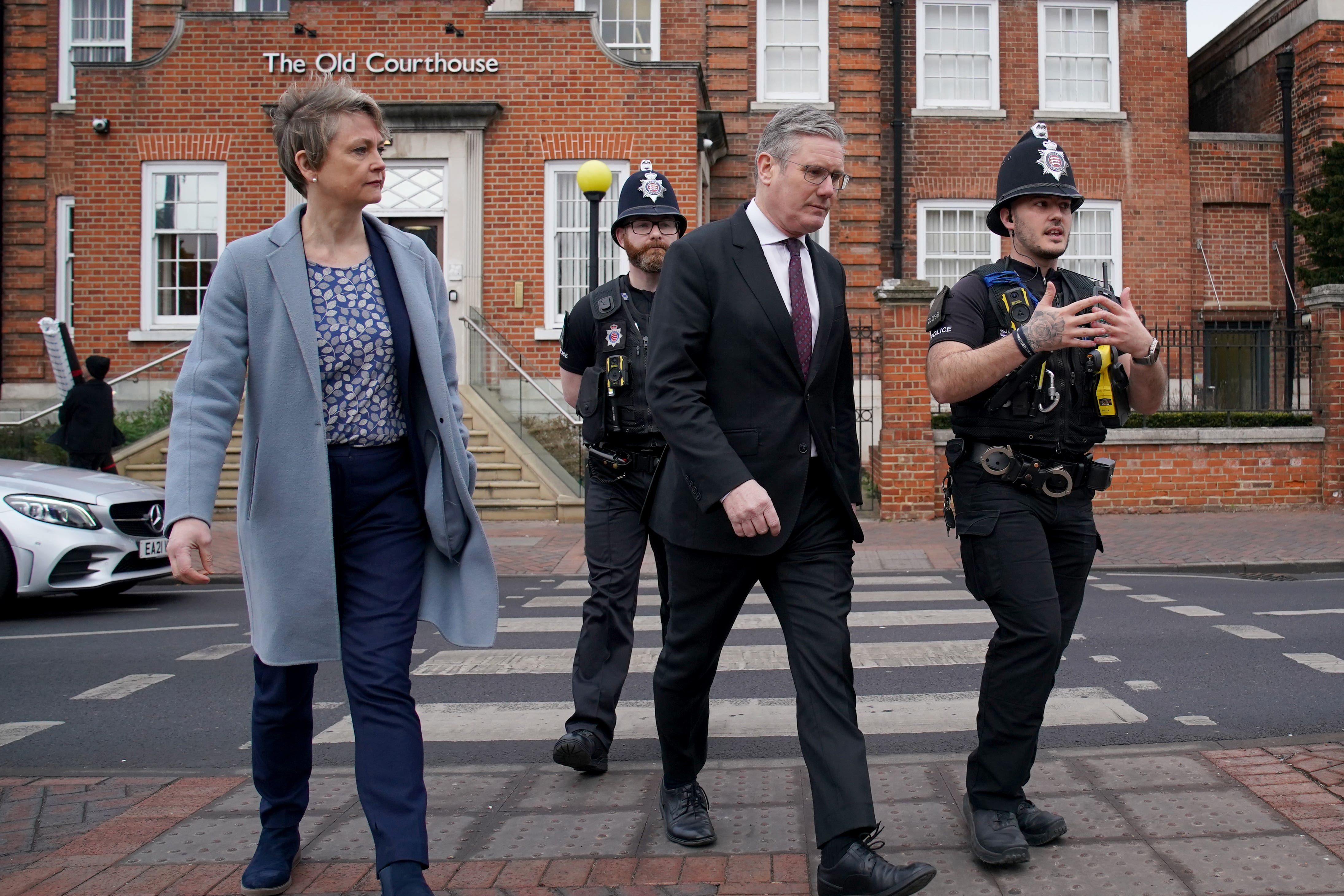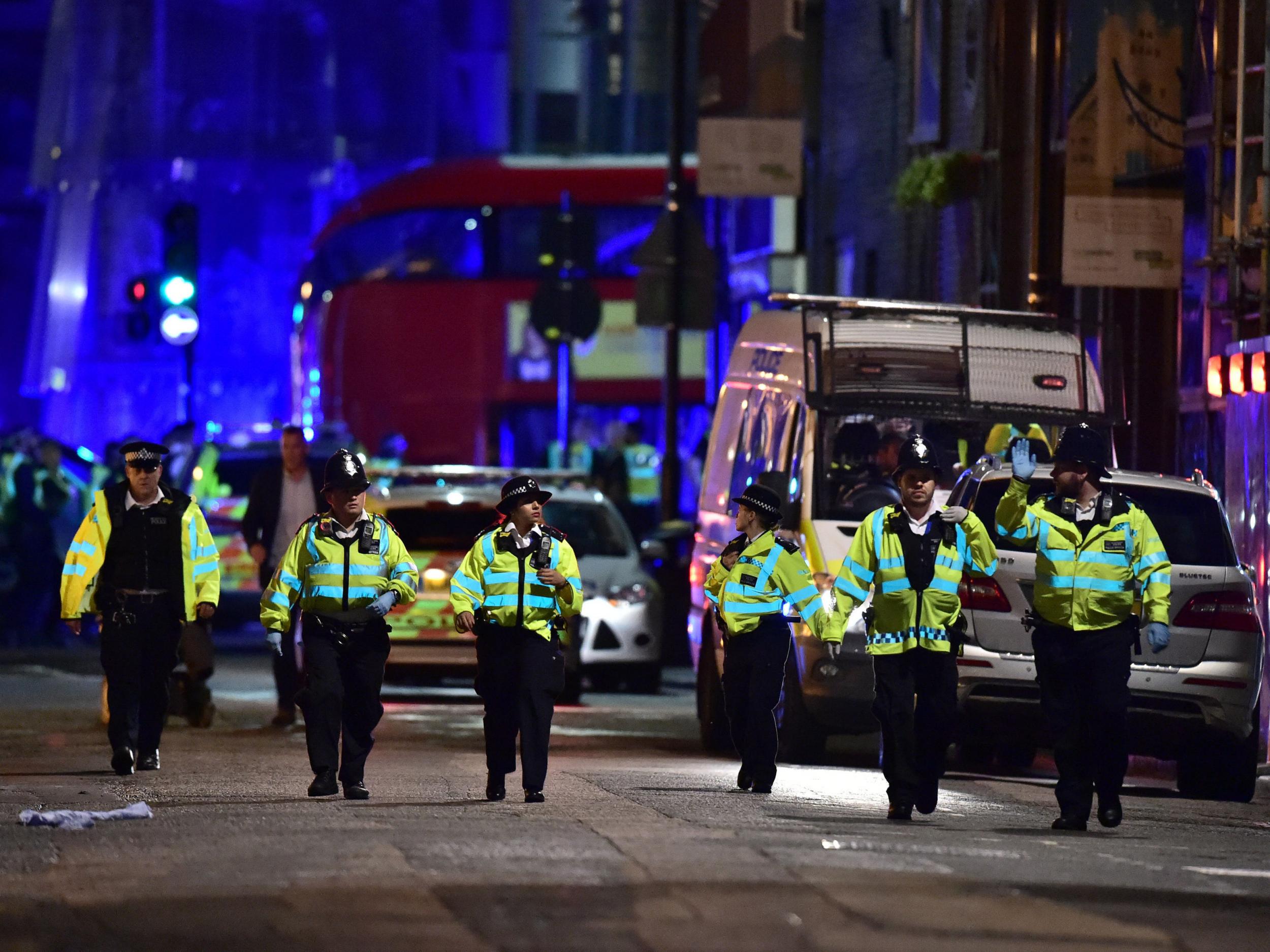How UK’s 'Prevent' Programme Sparked Criticisms for Discrimination Against Muslim Communities

“According to civil society, 50,000 people in the UK have been referred to Prevent since its inception.”
The UK Home Secretary faced sharp criticism last week from human rights and political groups after calling for a review of the criteria for referrals to the Prevent counter-terrorism programme, asserting that referrals related to what she described as Islamic extremism were less than required.
This comes amid reports that Muslims in the UK are subject to misreporting and disproportionate questioning compared to others, adding to the ongoing controversy over the programme.
With calls for a comprehensive reform of the programme increasing, the British government faces a major hurdle in restoring confidence in the system of combating extremism and striking a balance between security and respect for civil rights.
Previously, several UN reports and academic studies have highlighted the discrimination faced by Muslims under the Prevent programme.
A UN report issued in August 2024 also expressed concern about the high number of referrals related to Muslims, especially children.
Prevent has faced widespread criticism for discrimination and misuse as a surveillance tool since its launch after the 2005 London bombings.
Blatant Failure
After the 2017 attacks in London and Manchester, then-Prime Minister Theresa May seized the moment to push for more surveillance, tighter Prevent enforcement, and an overhaul of counter-terrorism laws that disproportionately targeted Muslims.
She set the stage for the Counter-Terrorism and Border Security Act 2019, which expanded the securitisation of everyday spaces and reinforced the underlying precrime logic of Prevent.
Now, Prime Minister Keir Starmer and Home Secretary Yvette Cooper seem poised to follow the same playbook. In the wake of the Southport attack and the revelation of numerous potential failings, the focus has been on Prevent.
Cooper, in a statement to Parliament, claimed that Prevent referrals for Islamist extremism were too low.
The controversy sparked by Cooper’s comments came after it was revealed that Alex Rudakubana, the teenager convicted of killing three girls in a knife attack in Southport last year, had been referred to Prevent three times during his schooling, without adequate action being taken.
Rudakubana, who was 17 at the time of the attack, was first referred to Prevent in 2019 when he was 13, after searching school computers for US school massacres.
However, UK authorities ruled out that he was motivated by terrorist ideology or posed a terrorist threat.
He was referred again twice in 2021, with one referral recommending support from mental health and special education services. But government reviews confirmed he should have been placed on the Channel programme, which is designed to rehabilitate people at risk of radicalisation.
After the attacker’s guilty plea, PM Starmer criticised the government’s failure to prevent the attack, describing it as a blatant failure, and announced a comprehensive review of the Prevent programme.
He also announced that he had appointed Lord David Anderson as an independent commissioner for the programme to assess the effectiveness of Prevent.
Anderson, who has previously called for the programme to be implemented in a measured manner, is expected to conduct a comprehensive review of the Rudakubana case and make recommendations for reforming the Prevent programme.

Widespread Criticism
Labour’s latest comments have angered British human rights activists, who have warned that lowering the referral criteria could lead to further discrimination against Muslims.
Prevent is part of the UK government’s counter-terrorism strategy, designed to protect those at risk of radicalisation and prevent them from becoming terrorists.
It was launched after the 2005 London bombings, initially targeting Muslim communities, but has faced widespread criticism for discrimination and its use as a surveillance tool.
According to civil society, 50,000 people in the UK have been referred to Prevent since its inception.
In recent years, referrals relating to far-right concerns have outpaced those relating to Islamist concerns.
However, critics have highlighted that referrals involving Muslims remain disproportionately high relative to the size of their population in the UK, reinforcing allegations of systematic discrimination against Muslims in the country.
For example, the latest figures show that 1,314 referrals (19%) were related to far-right concerns, while 913 referrals (13%) were related to Islamist issues.
Notably, 36% of all referrals involved individuals who were deemed to have no ideology or counter-terrorism risk.
A 2022 study also showed that more than 70% of Muslims in England and Wales live in Prevent Priority Areas, compared with just 30% of the general population.
Layla Aitlhadj, director of Prevent Watch, which supports people affected by the programme, confirmed that the UK Home Secretary’s recent statements contradict the available evidence, describing them as an attempt to exploit tragedies to promote divisive rhetoric instead of addressing the real shortcomings of the strategy.
Fionnuala Ni Aolain, the UN special rapporteur on the promotion and protection of human rights while countering terrorism, said the strategy had a negative and discriminatory impact on Muslim communities, and that its implementation was inconsistent with the UN Convention on the Rights of the Child.
Human rights groups, including Amnesty International, have also called for the Prevent programme to be abolished, citing its racist and discriminatory impact.
Rights and Security International (RSI) has described the programme as having repeatedly failed to prevent violence, saying the government’s solution appears to be to expand the programme rather than reform it.

Growing Pressure
Amid long-running calls for reform, the Labour government has faced increasing pressure to overhaul its Prevent strategy since returning to power in July 2024.
PM Starmer discussed the changing nature of terrorism in the UK last week, and said he would change the law if needed to recognise the new threat posed by extremists without specific ideologies.
But fresh confusion surrounded the future direction of the UK government’s counter-extremism strategy, with Home Secretary Yvette Cooper forced to reject the conclusions of a leaked internal review that called for a focus on worrying behaviours and activities rather than ideology.
Reports revealed that Cooper ordered that the focus of policy to remain directed towards Islamist and far-right extremism.
In turn, Security Minister Dan Jarvis also said the review was not policy and that the government had no plans to expand the definition of extremism.
“As we have said repeatedly, Islamist extremism followed by far-right extremism are the biggest threats we face,” he said.

Extracts of the leaked review published by Policy Exchange indicate that it has called for the government’s approach to tackling extremism to be based on an ideologically agnostic approach.
Policy Exchange has been credited with shaping the direction towards counter-extremism taken by previous Conservative governments, and has been accused of promoting hostility towards British Muslims, which it denies.
It warned that the review’s playing down of ideology in general, and Islamism in particular risked becoming a major victory for critics of the Prevent programme.
Policy Exchange’s report recommends that responsibility for counter-extremism be shifted to the Home Office from the Ministry of Housing, Communities and Local Government.
Sources
- Govt says no plans to expand definition of extremism after leaked Home Office report
- UK’s Prevent strategy had in-built anti-Muslim bias. Now it is under review
- Prevent and the political performance of ‘justice’
- Home Office ministers reject their own department's review of counter-extremism policy
- Caught in the Web: ‘Prevent’ databases and the policing of children [Analysis]
- The Prevent duty and its chilling effect on human rights [Study]










